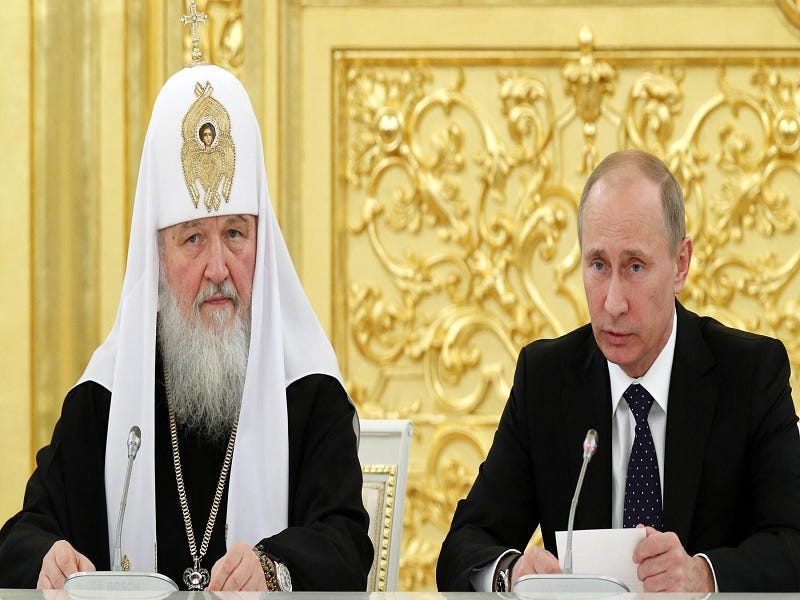Those migrants that refuse to assimilate and integrate threaten national unity by provoking a negative reaction from their hosts, while those Russians that spew ethno-religious hate speech (especially against Tajiks, migrants, and Muslims) threaten the same by provoking a negative reaction from non-Russians.
Last week’s terrorist attack at the Crocus City Hall venue in Moscow, which was carried out by radical Islamists but could have been ordered by Ukraine with Anglo-American assistance according to FSB chief Bortnikov, was one of the worst in Russian history. The fact that four Tajik migrants were most directly responsible for what happened raised the risk of an ultra-nationalist reaction among some members of society, which could threaten this historically cosmopolitan civilization-state’s unity to its foes’ benefit.
President Putin immediately reminded his people the day after the attack in his national address that “Terrorists, murderers, those inhumane individuals who have no nationality and cannot have one, face one and the same gloomy prospect – retribution and oblivion. They have no future. Our common duty now, shared by our comrades–in-arms at the front and all citizens of our country, is to stand united as one.” This signaled that the state will be strictly enforcing Article 282 of the Russian Criminal Code.
That piece of legislation prohibits the instigation of ethno-religious hatred. It’s designed to protect Russia from this toxic ideology that’s still spewed by some fringe elements within society and aggressively promoted among the population by foreign intelligence agencies like Ukraine’s and the West’s. Article 282 is more relevant than ever since some people might now be tempted to embrace ultra-nationalism and could thus fall under the influence of those aforesaid forces that want to “Balkanize” Russia.
In order to set the most positive example possible, President Putin then said on Tuesday that “It is extremely important for us now, when we’re dealing with what happened last Friday, to rely on these values of creativity, humanism and mercy. They unite us in supporting all victims, in our determination to stay strong and together.” The message being sent is that the social discourse must remain calm and not drift towards talk of unbridled bloodlust or blanket retribution against certain identity groups.
He implicitly reinforced this message the day after on Wednesday when clarifying that “We do not have any unfriendly nations, we have unfriendly elites in those nations”, adding that Russia “has never tried to cancel” anyone’s culture. Although he’s previously talked about this in the past, the context within which he once again reaffirmed this policy suggests a connection to recent events and wasn’t just because he was meeting with cultural professionals that day.
Patriarch Kirill, who warned late last year that “the whole Russian world is under threat” from some migrants’ refusal to assimilate and integrate into society and that this “threaten(s) interreligious and interethnic peace and harmony”, chimed in on the same day as well. He told the World Russian People’s Council that “Many consider migration a threat, but the threat lies not just in migration, but in the reluctance of some migrants to respect the culture of the country where they came to work.”
After repeating his message from late last year, he then importantly added that “Around us live fraternal peoples, with whom we have always strived to build good neighborly relations, understanding the difficult economic situation that has developed in a number of countries of the former Soviet Union. Let no one scare us with Russian nationalism. Russian nationalism does not exist in nature, everyone knows that.” In other words, migrants must assimilate and integrate, and Russians must embrace those that do.
Those migrants that refuse to assimilate and integrate threaten national unity by provoking a negative reaction from their hosts, while those Russians that spew ethno-religious hate speech (especially against Tajiks, migrants, and Muslims) threaten the same by provoking a negative reaction from non-Russians. The only way for Russia to remain united is for non-ethnic Russians (Rossiyskiye) and ethnic Russians (Russkiye) to follow President Putin’s and Patriarchy Kirill’s advice, which the vast majority already do.





Putin's explicit clarity is always so refreshing. And in this case, much needed everywhere!
Here was a Caesar. When comes such another?